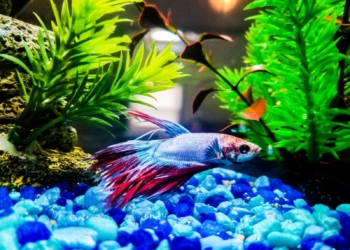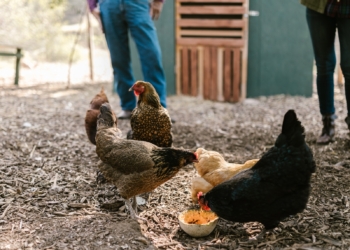Sea moss, also known as Irish moss or carrageenan moss, is a type of seaweed that is really popular these days. This is being used in so many different industries, from food to cosmetics. Many people have been feeding this to their dogs as well. So if you are a pet lover, it is quite natural to wonder Can Dogs eat sea moss?
In this article, we are going to discuss all about sea moss and if it’s good for your furry friend or not. We are going to explore the benefits and also the risks of adding sea moss to your pet’s diet. If you are a pet owner and are thinking about adding sea moss to your dog’s diet, then keep reading!
Sea moss as food
Sea moss is a rich source of nutrients and minerals, including iron, iodine and potassium. These minerals are essential for maintaining your dog’s health. This is why many pet owners are feeding their dogs sea moss. This can be really great to provide your pet overall nutrition that they need. Thus, you can introduce sea moss to your dog’s diet to supplement their nutrition needs.
While this may seem like a good idea, there are several factors that you should consider before giving sea moss to your furry friend.
Can dogs eat sea moss?

Coming to the real question, can dogs eat sea moss? Well, the answer is yes, absolutely. Dogs can definitely consume sea moss but in small amounts and as an occasional treat. However, it should not have a significant portion in their diet as this can be really difficult to digest for dogs.
Which can lead to many severe issues in the long run. Moreover, some species of seaweed can be toxic for your dog, so choose carefully. Make sure that it is safe for your furry friend and doesn’t have any harmful effects on your pet.
Benefits of Sea Moss for Dogs
As mentioned before, sea moss is a rich source of vitamins and minerals that can help support s dog’s overall health. Some of the benefits of incorporating sea moss into a dog’s diet include the following:
- Sea moss can improve digestion in dogs.
- It can promote healthy skin and fur coats.
- Sea moss can boost the immune system.
- Supports joint and bone health.
- Helps with weight management in dogs.
- Supports dog’s kidney and bladder system
All these are the potential benefits of introducing sea moss into your dog’s diet. So if you want these health benefits, you can include sea moss in your pet’s diet. However, it should be in moderation.
Risks of sea moss for dogs
As we just mentioned the potential benefits of incorporating sea moss into your dog’s diet, there are also several risks associated with this that you should know about. Some of the risks of feeding sea moss to your pet include:
Digestive issues: sea moss can cause several stomach problems, such as diarrhoea in dogs, especially in older dogs. Which is why you shouldn’t overfeed your dog too much.

Thyroid problems: sea moss is high in iodine, which can disrupt thyroid function in dogs. This can cause a variety of problems which can include hair loss, bald patches and weight gain.
Toxicity: Several species of sea moss can be toxic to your dog’s health. These species can contain numerous toxins that can be harmful to your dog. Symptoms of seaweed can be vomiting, lethargy, seizures and diarrhoea.
Frequently Asked Questions
- Can dogs eat sea moss?
Yes, absolutely; dogs can eat sea moss, but in small amounts and occasionally. However, it should not make up a significant portion of your dog’s diet.
- What are the benefits of feeding sea moss to your dog?
Some of the benefits of incorporating sea moss into a dog’s diet include the following:
- Sea moss can improve digestion in dogs.
- It can promote healthy skin and fur coats.
- Sea moss can boost the immune system.
- Supports joint and bone health.
- Helps with weight management in dogs.
- Supports the dog’s kidney and bladder system.
- How much sea moss should I feed my dog?
You should feed your dog sea moss occasionally and in small quantities. Moreover, it is best to consult your veterinarian before incorporating sea moss into your dog’s diet.
- What should I do if my dog consumes too much sea moss?
If your dog consumes too much sea moss, then it might experience several issues like diarrhoea and upset stomach. So you should consult your veterinarian if your dog consumes too much sea moss.
- What is the risk associated with feeding sea moss to the dog?
Although sea moss has several health benefits. Still, there are many risks associated with this, such as some species can be toxic for your dog, and if they overfeed, it can make their stomach upset.
The Bottom Line
Lastly, I want to mention that as a pet parent, you should know all the pros and cons of feeding sea moss to your dog. While there are several benefits of dogs eating sea moss but it should be given in moderation. So before including sea moss in your dog’s diet, you should consult a veterinarian.







